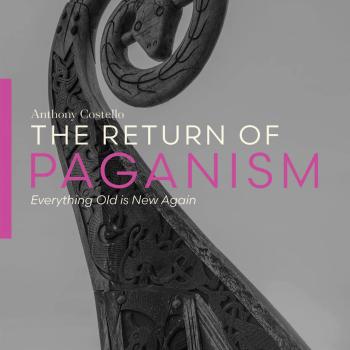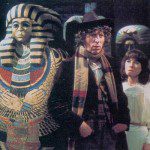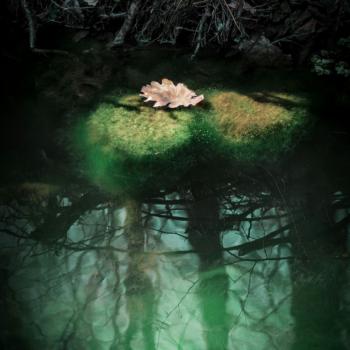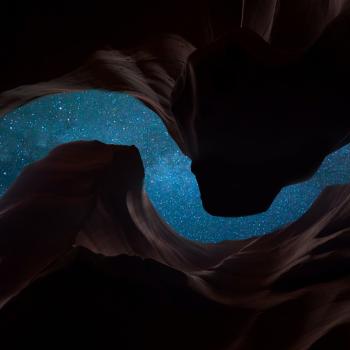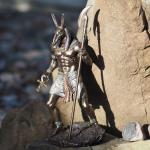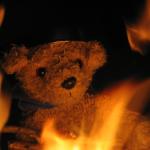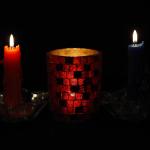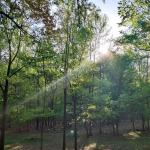Finding your way back into the soul of the world
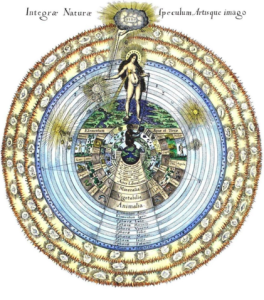
Ethnographer and archeologist Irving Hallowell, who studied the Native American Ojibwa (Chippewa, Anishinaabe) people said, “The Ojibwa concept of personhood is relational: persons were not classified according to whether they were human or physical, but rather according to their capacity to engage in relationships with other persons.” (1960)
In my ongoing effort to Normalize the Paranormal, I want to dive a little deeper into some of the issues we face when we ask ourselves things like, “Are paranormal experiences real?” I think one of the best ways to approach this question is to first talk about the need to decolonize our worldview. But what does that even mean?
Decolonizing Your Mind
Here in the West we love our science. We love to analyze, evaluate, and dissect things down to their smallest knowable units. This is great if you want to build a computer, cure a disease, or travel to outer space. But when it comes to spirituality and engaging the human soul, trying to analyze and prove everything down to its bits and bytes is not very helpful.
As Westerners, we have so overloaded ourselves with facts and figures that many of us have lost the ability to touch into the mystery, the numinous, that sits just beyond our known universe.
This is primarily a result of colonialism that says that anything or anyone different from the predominant Western paradigm is fair game to be subdued, used, and controlled. Unfortunately, this mindset has also underpinned many of our academic institutions for generations. Academic colonialism has tried to define the acceptable ways of knowing and being for the rest of the world—mainly through proselytization, coercion, and often force. This happened because our academies have largely been comprised of the people with the wealth and privilege to study, record, and assess what they deem worthy of their attention—namely, what enables them to accumulate more wealth and power.
So what happens when only one class of person is allowed to define reality? Well, it leads to a construction of reality that promotes the idea that their way of being in the world is right and everyone else is wrong. “Everyone should live in a highly individualistic free-market system because we do,” they claim. Wars have been waged on just that premise alone!
Sadly, this mindset spills over into psychology and spirituality. Research and reporting from within a colonialist framework tends to devalue the embodied and numinous experience of the practitioners in favor of a more psycho-social analysis of the phenomenon. Researchers report on what they deem important and interpret the data according to their perspective–usually a white, patriarchal, elitist one. This often devalues anything that sits outside of the measurable or profitable.
The good news is there are an increasing number of indigenous and post-colonialist scholars who are challenging the way in which we think about reality (Bowie 2010, Hunter 2010, Walker 2013). They call for a reevaluation and decolonization of our ways of knowing and constructing knowledge and rethinking our ideas about what is considered “normal” vs. “paranormal.”
These researchers admonish us to avoid questions like “is this real and provable?” in favor of honoring the sanctity and belief system of the people and culture within which paranormal or supernatural beliefs are fostered.
Still, how do those of us who were raised within the Western framework go about dismantling a mindset that is often so pernicious we don’t’ even realize it’s at play? The saying, “The fish doesn’t talk about the water in which it swims” comes to mind.
We can begin by immersing ourselves in the mysteries of other-than-human life.
Honoring All of Life
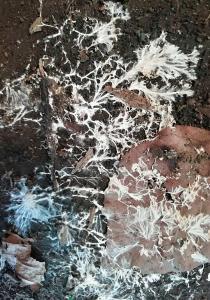
Anthropocentrism is the idea that humans are the most important species on Earth—the dominant, most evolved of all of Earth’s varying species. This worldview is essentially what has led to the extinction of other species and devastation of our natural resources.
In contrast, Animism understands that Earth is a living, breathing intelligence full of intelligent life at all strata of consciousness. As Ecopsychologist Theodore Roszak stated, “Animism is irrepressible because it is a valid perception of the natural world as having dignity, vitality, and mentality.” (1992)
Swiss Psychologist Carl Jung said that we are living inside the world psyche, what he called the world soul. And we are not a discrete or separate part of this world soul, functioning within a vacuum. We are a vital, contributing member of the collective consciousness, the intelligence of Earth.
But humanity is just one such species, neither greater nor lesser than the other beings we share our planet with. Not better, just different. We do things that other species can’t, and they do things we can’t. Just try pollinating a field or composting a bunch of food scraps, and you’ll realize how very limited humanity actually is!
The concepts of panpsychism and pantheism also hold similar animistic attributes. Panpsychism is the idea that matter at all levels, including fundamental particles, has an inherent property of sentience or mind. It’s a term that’s gaining serious attention in both science and the humanities, as our sciences continue to explore the fundamental connective tissue that animates and brings cohesion to all life. Pantheism, a term found in religious studies, is the idea that everything is infused with the divine, or perhaps that everything is divine. Ultimately, both of these terms are seeking to describe the idea that there is animate intelligence at every strata of being. And because “every strata of being” necessarily includes beings outside of the mundane world, it may lead one to consider the supernatural, like the concept of spirits and the Otherworld.
Encountering the Otherworld
The Otherworld is thought to be a world that is adjacent to and sometimes overlaps with the physical realm. It’s a concept that appears widely across world religions and comparative mythologies. In fact, the idea that there is a realm (or realms) of supernatural beings, planes of existence, or even simply a realm of the dead, is actually found in many cultures throughout the world, it’s just called by different names—Annwfyn, Sheol, Valhalla, Loka (even Purgatory) to name but a few. Otherworldly spirits, then, are thought to travel between worlds or layers of existence, usually along an axis such as a giant tree, a tent pole, a river, a rope, or mountains.
But for those of us who were raised here in the West, and who don’t have a cultural matrix which holds paranormal or supernatural beliefs as sacred and normal, how do we interact with these worlds? And how do we break out of the Western need to quantify or prove everything?
Listening to the Subtle Realms
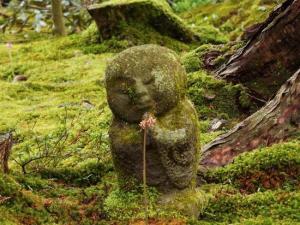
One of the best ways to begin to develop an animist relationship with other-than-human life, is to see Earth as a living, breathing entity, (sometimes called Gaia), who is a friend, confidant, maybe even lover. We can begin to do this a few ways:
Get to know your local flora and fauna—the rivers, rocks, and tree species in your area. They hold a lot of information not only about your local ecology, but also about the living memory of the land. From the animist perspective rocks, trees, and plants are all beings that can speak to us via our subtle senses. They are the recordkeepers of Earth’s memory. Knowing their names and being able to identify the genus, species, and lifecycle of a particular plant or animal heightens our awareness and relationship to it.
Cultivate a relationship with the spirits of place. Sometimes called the genus loci, the ancestors of the land you live upon, both human and other, are the ones that came before you. Begin by making an offering to the land spirit, whatever feels most appropriate to your regional landscape. Then acknowledge and honor the indigenous peoples and spirits of place that predate your arrival. Learn the names of the indigenous tribe or people who historically lived in your area (the Native Land app is great for this purpose). Then every time you go out into nature, or perform a ritual, acknowledge their presence.
Honor your unknown or ancient ancestors and spirits. For many of us in North America we’re transplants—we aren’t native to the land we live upon. We may have been born here, even had generations of ancestors who have lived here, but at some point we can trace our ancestry back to another country or land. Which means we also carry an ancestral inheritance of spirits, the spirits our ancestors worked with before they migrated across countries or oceans. Many of our ancestral spirits were carried by our ancestors and reside here with us now. Others we may have connected to when we travel and brought them home with us. So in addition to a beloved, or known, ancestor altar for your immediate relations, I recommend setting aside space for the unknown ancestors and spirits that walk with us, many times for generation upon generation following our family lines.
These simple practices help us begin to refine our subtle senses and attune us to non-ordinary ways of perceiving the world, a practice known as re-enchantment.
Re-enchanting Your Worldview
Re-enchantment is a response to the increasing disenchantment, or devaluation of religion and spirituality, that has arisen as a result of modernized, bureaucratic, secularized society. Re-enchantment calls for re-sacralization—making sacred the stories, myths, meaning, and mysteries of life as a necessary tonic for a sick and dying world. In the re-enchanted worldview humanity becomes a participant in the cosmos, not an isolated observer—we become grounded in the real and intimate connection between humans and nature.
Psychologist and Celtic mythologist, Dr. Sharon Blackie in “The Enchanted Life: Reclaiming the Magic and Wisdom of the Natural World” (2018) gives us a manifesto for living an enchanted life. She outlines 13 simple steps for reenchanting our lives:
- Everything around you is alive: believe it. Tell stories to stones, sing to trees, start conversations with birds. Build relationships. You’ll never be lonely again.
- To be fully in your body is to be fully alive. Get out of your head and into the world.
- Look for the wonder wherever you go. Be all your life, as American poet Mary Oliver suggested, ‘a bride married to amazement’.
- Embrace mystery – don’t be afraid of what you don’t know.
5. Cultivate your mythic imagination: the inner and outer landscape of myth. - Know your place. Learn to belong, because wherever you go, there you are. There’s nowhere else real to be.
- Cleave to the local and the ethical. Cultivate community spirit, and autonomy.
- Slow down.
- Create. Buy handmade. Live folklorically.
- Don’t have a career: have a life. Find your calling – but above all, find your meaning in the community of the world.
- Foster meaningful ritual; make each day a ceremony, or make a ceremony in each day.
- Cherish otherness, in all its forms; confront in yourself, and explore, the forms of otherness which make you uncomfortable or afraid.
- Treasure change: it’s the stuff from which lives are forged. Stop looking for the eternal and immutable, and enter into the daily dance with the transitory.
Similarly, terrapsychologist Dr. Craig Chalquist takes re-enchantment and marries it to activism. He calls this enchantivism. Enchantivism is an activist approach that seeks to inspire deep societal change, either locally or more widely, by working with story, myth, dream, and the presence of place to inspire and envision alternative possibilities for our future as a species and a planet. Ultimately, the stories we tell ourselves and each other define us, shape our reality, and either inspire or hinder our possible future.
Here’s the deal, supernatural stories within mainstream religion go largely unquestioned by the faithful. But for non-mainstream religions, like paganism, most of our extraordinary tales have been relegated to the study of myth and folklore, or worse to the realms of fantasy.
We need to reclaim our stories and the voices from the land we live on, the anima mundi. We need to claim our mythmaking power as a means for shaping and reframing our reality and society. We need to TELL BETTER STORIES!
Embracing the Mystery

Sharon Blackie says it all begins with our mythic imagination. She defines this as “an awareness of the importance of story, and an ability to tune into the mythic patterns which underlie our lives.”
It all begins in the imagination or the imaginal realm. And imagination isn’t about making things up. In Depth Psychology imagination is the very foundation and structure of the psyche. It is, like the Ojibwe belief, our ability to see and relate beyond the everyday human world to deeper and greater realms of knowing and being, whether they be down into the smallest mycelial unit or all the way out into the knowledge and expression of cosmic intelligence.
I call this, Embracing the Mystery–reaching out to the various layers of the word soul, of which humanity is just one.
“Enchanted living, then, is slow living,” says Blackie. We encounter the mystery by slowing down so that we can hear the softer, more nuanced voice of nature, Earth, spirits, the otherworld, and all the various levels of intelligent, yet subtle communication therein.
So I invite you to embrace the animist practice of engaging with the other-than-human beings around you. See them as alive and sentient. Re-enchant your subtle senses by acknowledging that there are many more layers and nuances to the world around you than what your five primary human senses can perceive.
Just these two practices alone may help us course-correct the anthropocentrism of our species, and ultimately may help us shape a world that works for everyone—all species, all beings, all dimensions.
Resources
Blackie, Sharon. 2018. The Enchanted Life: Reclaiming the Magic and Wisdom of the Natural World. Toronto: House on Anansi Press.
Chalquist, Craig. n.d.-b. “Enchantivism: Transmutation through Inspiration.” http://www.chalquist.com/writings/enchantivism-transmutation-inspiration.
Hallowell, Irving A. 1960. “Ojibwa Ontology, Behavior, and World View.” In S. Diamond (Ed.), Culture in History: Essays in Honor of Paul Radin. New York, NY: Columbia University Press.
Roszak, Theodore (lecturer). 1992. “Towards an Eco-Psychology, Part 3.” Interview by Jeffrey Mishlove, August 10, 1992. Thinking Allowed (TV series), directed by Arthur Bloch. DVD.



